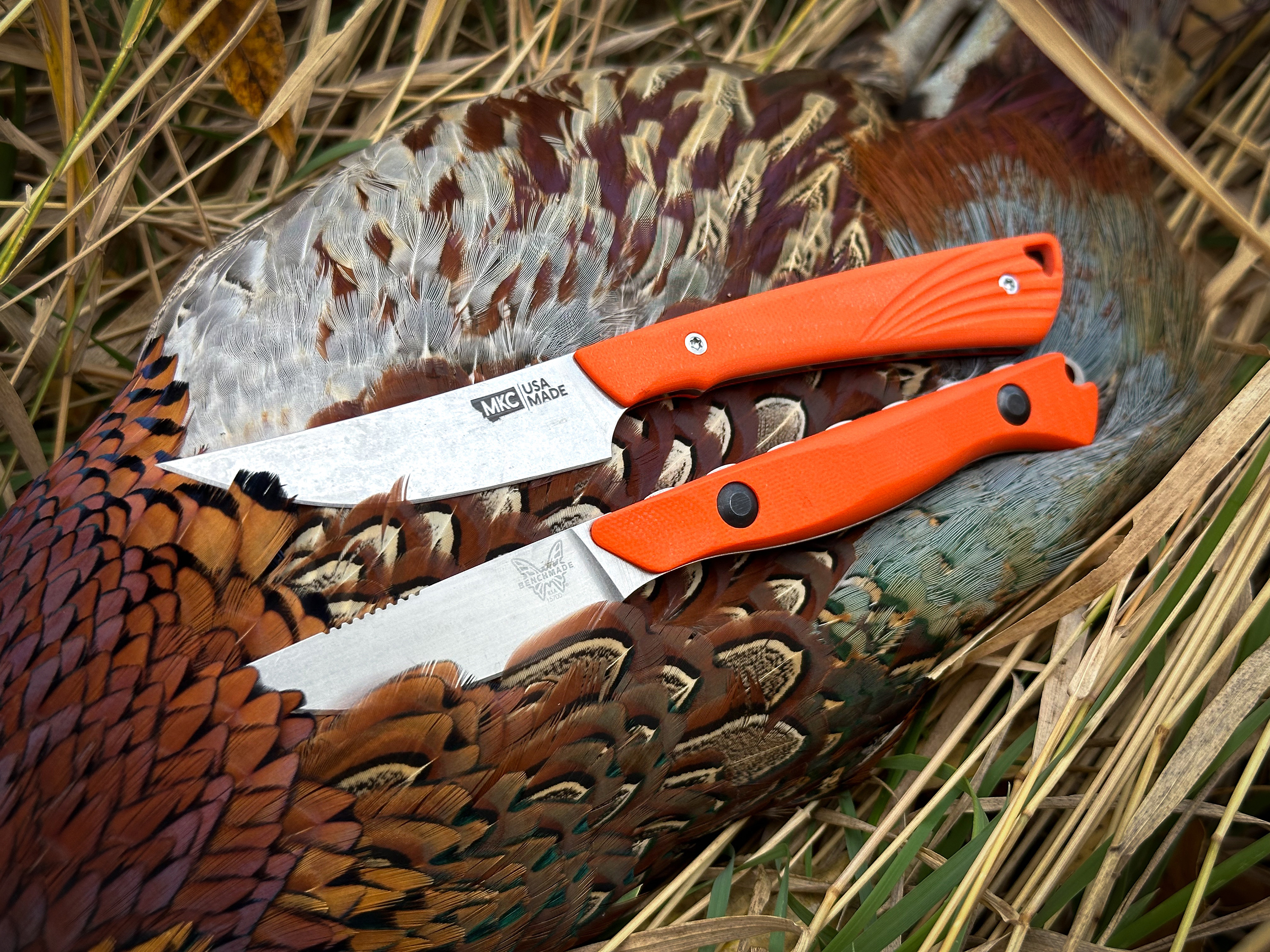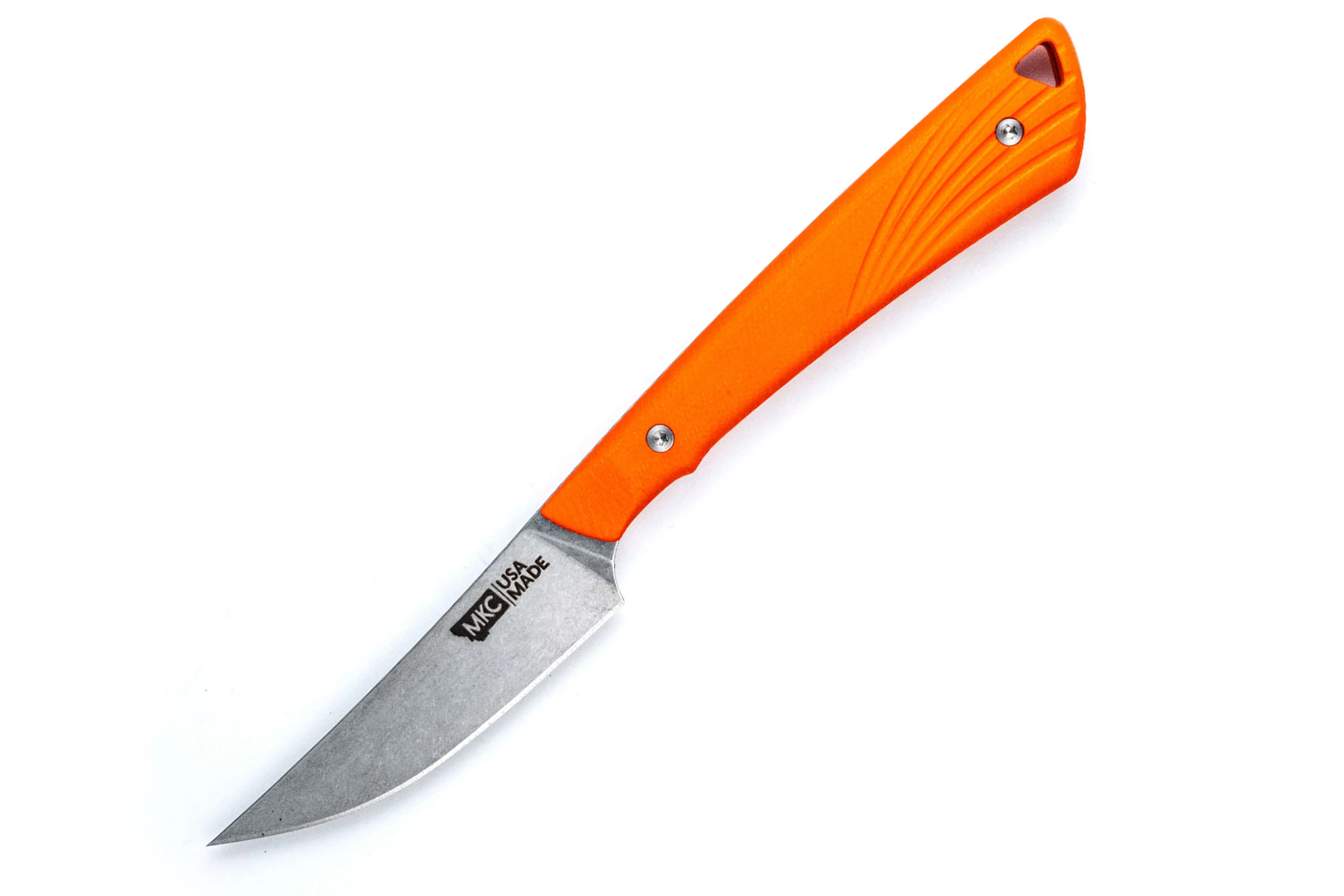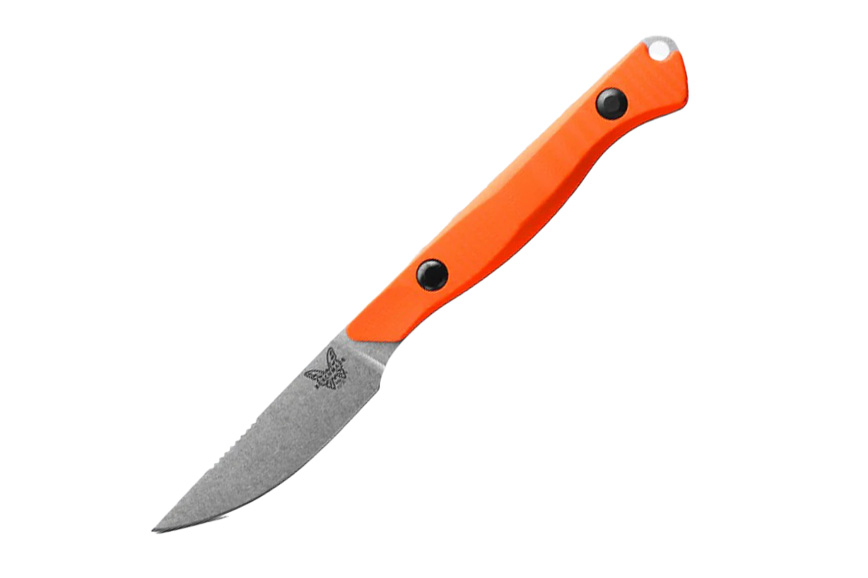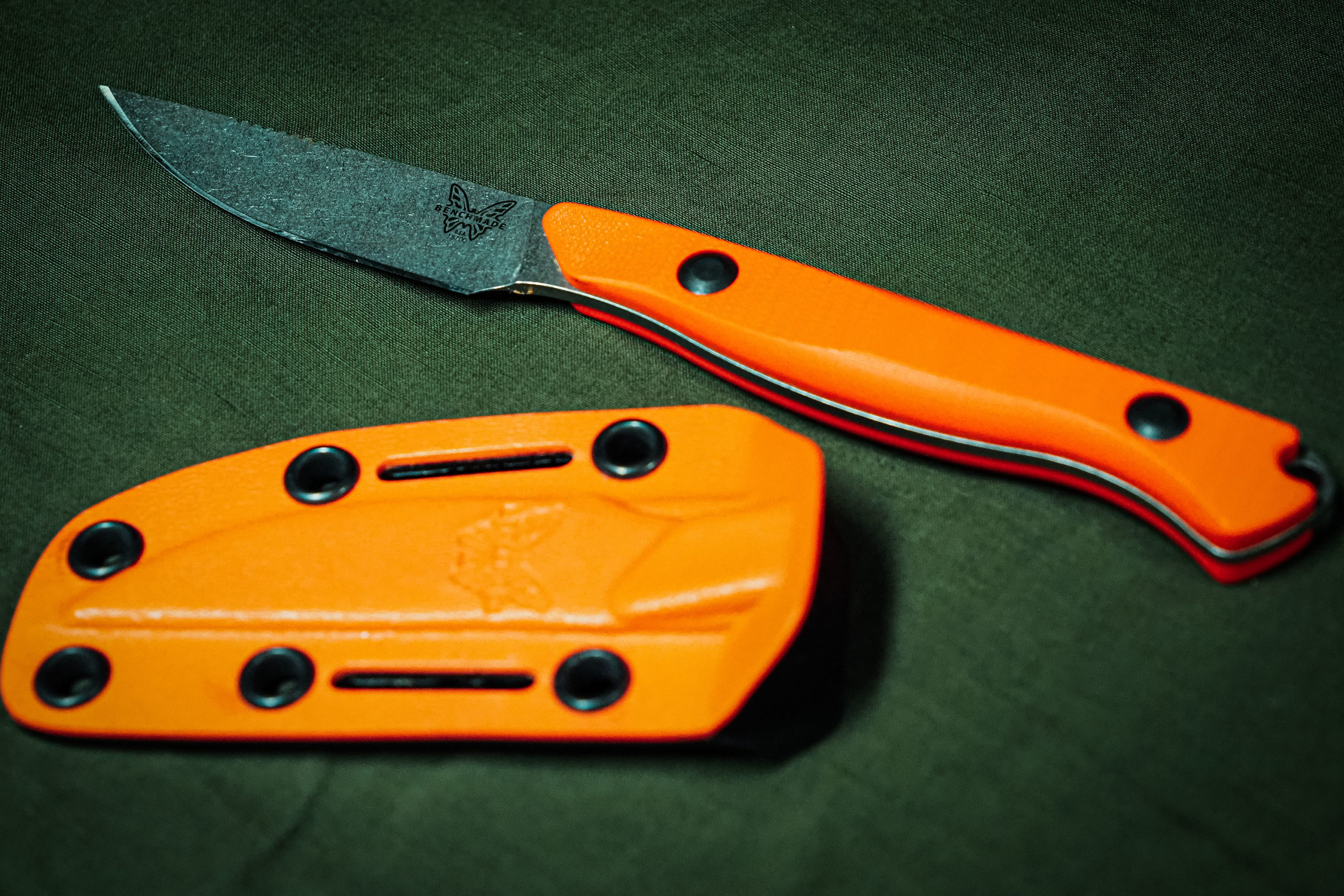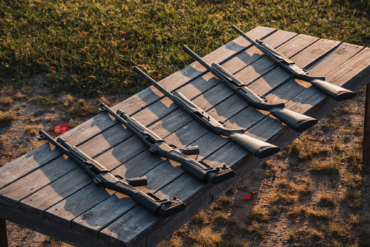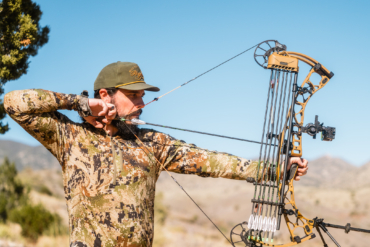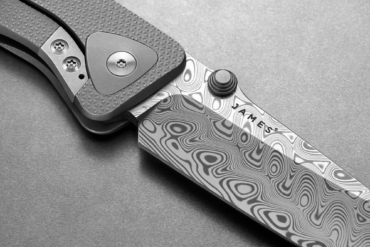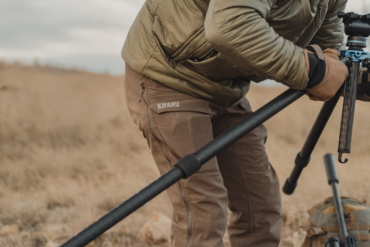Seeing double? Not quite. However, the MKC Sharptailed looks suspiciously like one of our favorite knives ever, the Benchmade Flyway. What we have here are two upland knives with similar builds and very similar looks, tasked with the same specialty.
Sure, I could give you a straight-up review of the Sharptailed and skirt around the elephant in the room, but I don’t like to operate that way. To an untrained eye, these look like the exact same knife. Though they are incredibly similar, there are some differences that even took me a bit to figure out.
So, who comes out on top of the battle between our favorite upland/paring knife, the Benchmade Flyway ($200), and the new kid on the block, MKC Sharptailed ($275)?
In short: Without giving away the winner right up front, Benchmade Flyway and MKC Sharptailed are both really quality upland knives. There are some price and material differences, some hand feel preferences, and little details that might just set one over the other. So, who takes home the top prize?
The Specs: MKC Sharptailed vs. Benchmade Flyway
- Design: Full tang fixed blade
- Steel: MagnaCut Stainless Steel
- Handle: G10
- Blade length: 2.875"
- Blade thickness: 0.110"
- Overall length: 7.125"
- Weight: 1.87 oz.
- Design: Full tang fixed blade
- Steel: CPM-154
- Handle: G10
- Blade length: 2.70"
- Blade thickness: 0.09"
- Length: 6.96"
- Weight: 2.10 oz.
At First Glance
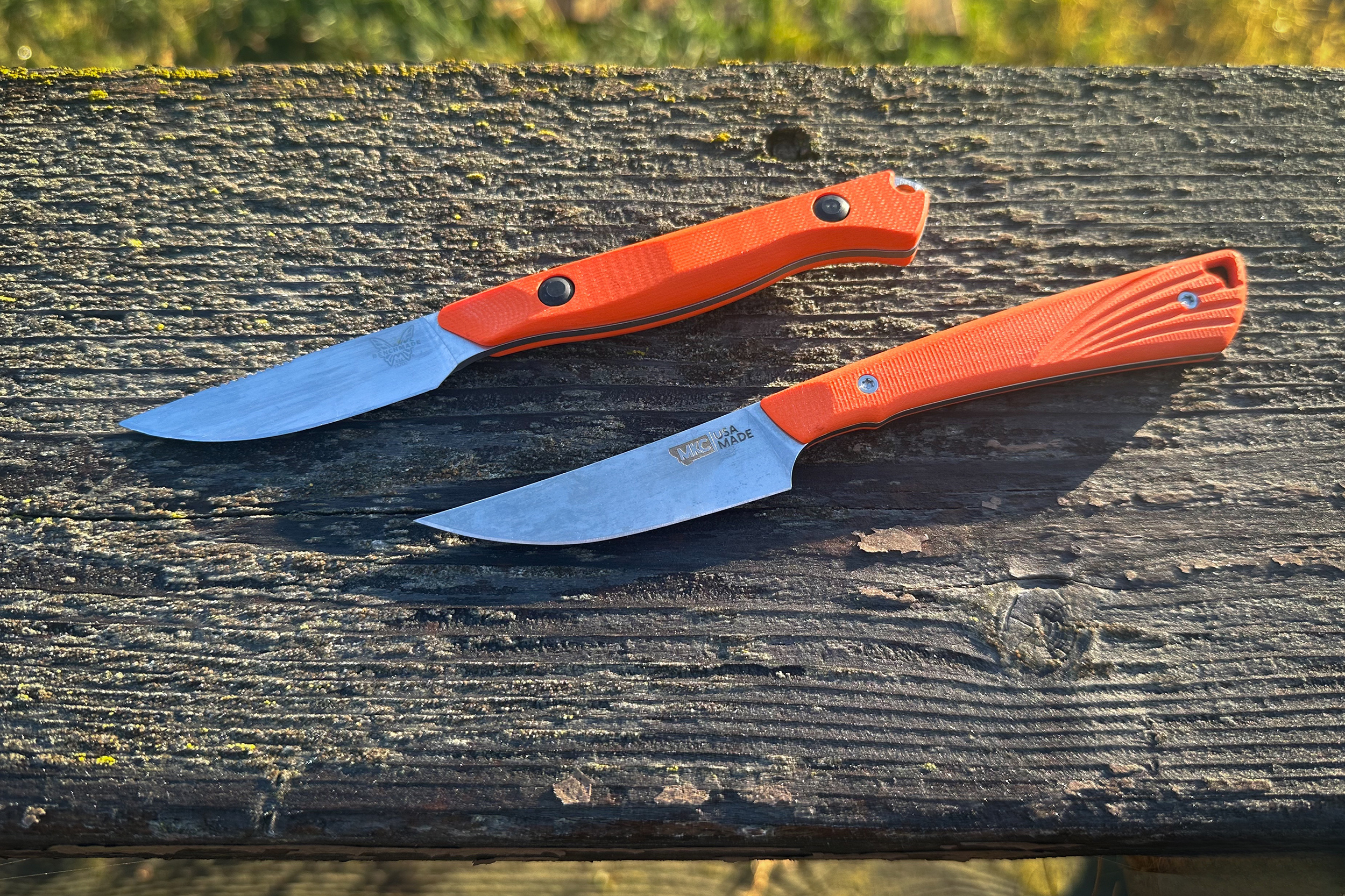
75 Extra Dollars? In This Economy?!
Right off the bat, you can see the similarities between the knives. Without looking up specs, seeing the two on the shelf would likely lead most of us to grab the one that offers a $75 savings over the other (the Benchmade). I mean, in the real world, that $75 savings could buy you a second knife altogether.
However, the answer to that might be as simple as material composition and company size. MKC is still a relatively small company, with all knives made in Montana and all of the materials 100% sourced in the U.S.
Benchmade is obviously a larger company, with knives made in Oregon. The steel used in the Flyway is also American steel.
The specific steel material used is likely the biggest answer to the price difference. More on that to follow.
Sheath Differences

The Flyway comes with a Boltaron sheath, while the Sharptailed comes with a Kydex sheath. If you don’t dig into the minuscule differences between the two materials, you’ll never be able to tell the difference.
They are both thermo-molded plastic. I will say that I like the flare of the Benchmade sheath slightly more. It gives you a foundation to pop your knife out without doing the full hand grab.
The MKC sheath does have a clip that is almost as big as the sheath itself, though.
Hand Feel
In hand, the MKC Sharptailed feels a bit lighter, has a much slimmer handle, and has a slight edge in total length. The Benchmade Flyway boasts more heft, with a bigger-bellied handle, giving it a fuller palm feel.
There is some historical bias to this initial hand feel. Partly because I have several of these knives, the Benchmade Flyway felt more comfortable in my hand. I use them in the field and as paring knives in my kitchen, as does GearJunkie’s Editorial Director, Sean McCoy.
They are in my hand often and have that familiar fit I’m just used to at this point. However, that comfort shifted a bit the more I had the Sharptailed in hand. The longer, slimmer handle, grippy ridges, and more aggressive handle-to-blade transition groove felt a bit more secure in the hand.
Devil in the Details
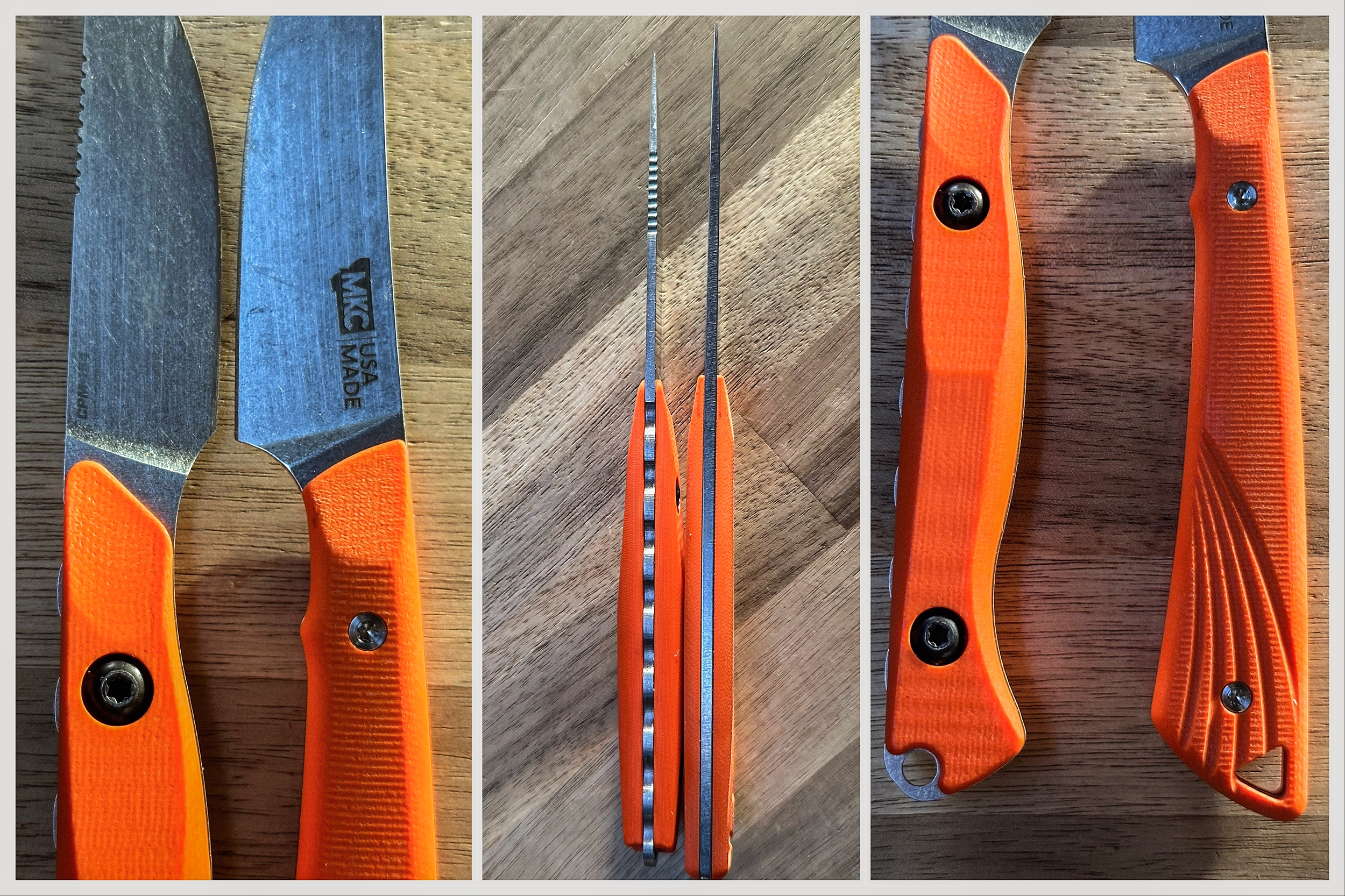
Now, a look at the details to break it down beyond the first date.
Materials: Winner MKC Sharptailed
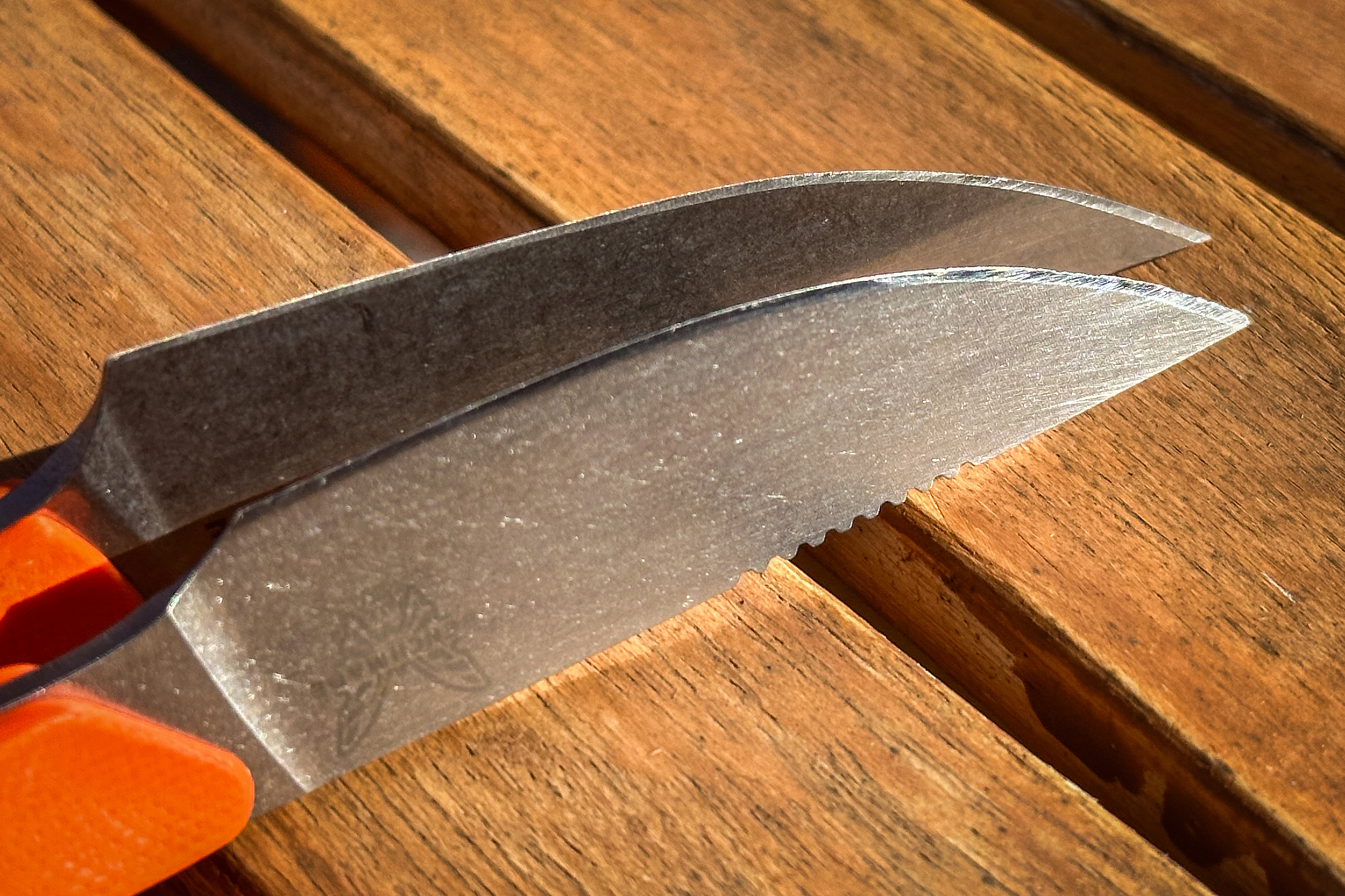
Both knives have G10 handles available in a variety of shades. Both knives have full-tang stonewash, stainless steel construction. But that’s where the material similarities end.
The biggest difference between these two knives comes down to steel. The Benchmade Flyway is constructed with CMP-154 stainless steel, while the MKC Sharptailed is built with MagnaCut stainless steel. Both are great materials, but MagnaCut has a clear edge (pun intended) over CPM-154.
It is harder, and it has better edge retention and greater corrosion resistance. It might be a bit tougher to sharpen, but that’s its only downfall when compared to CPM-154 (other than price).
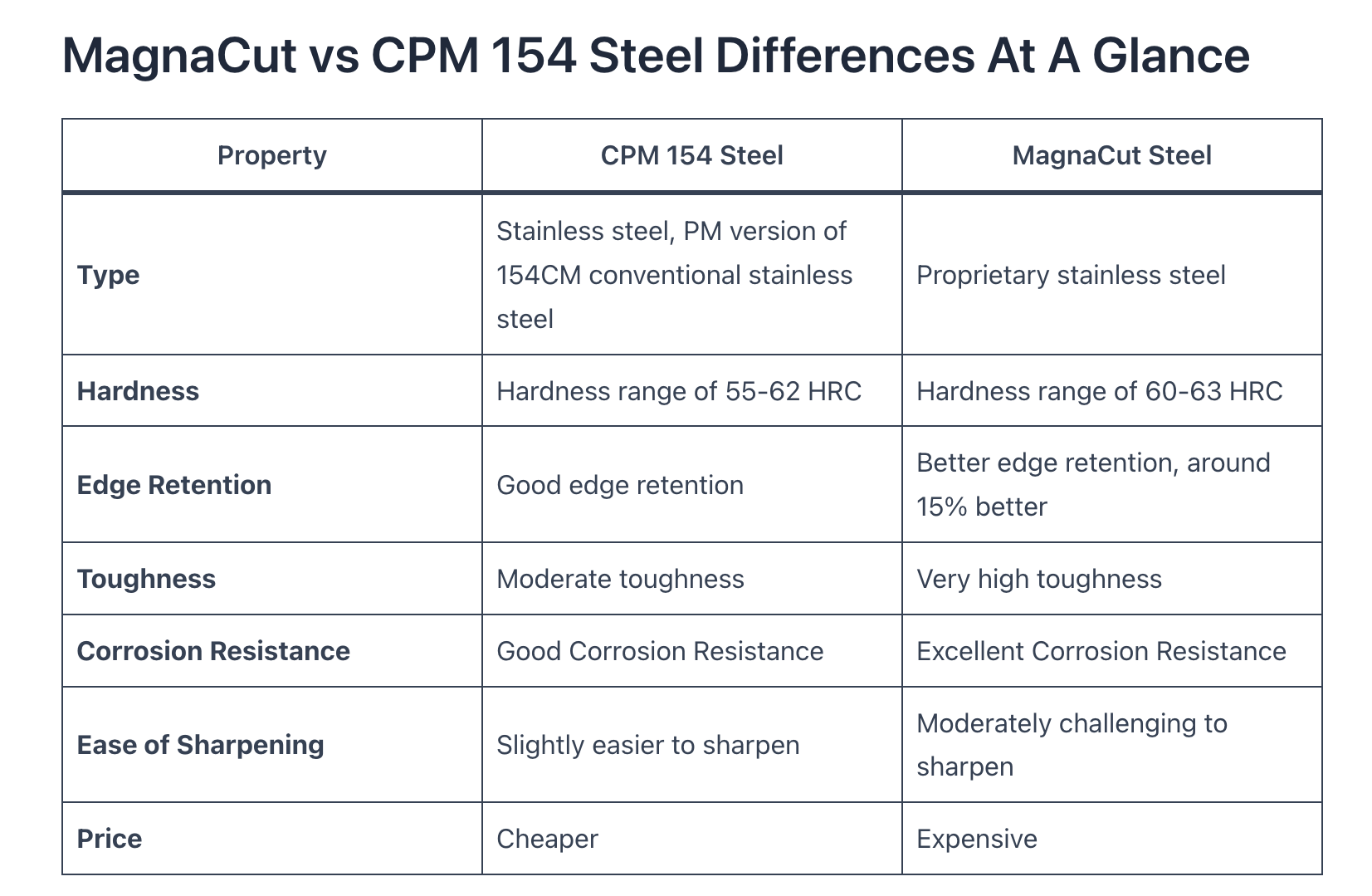
Build, Shape, Details: Toss Up
I hate not giving a hard win here, but listen: it all comes down to preference. The MKC might have a bit of an upper hand, but that’s just my very slight opinion. Both knives have a tie/clip hole for attachment and G10 handle materials.
Aside from that, there are some notable differences.
MKC Sharptailed: Longer, Lighter, Thicker, More Aggressive Blade
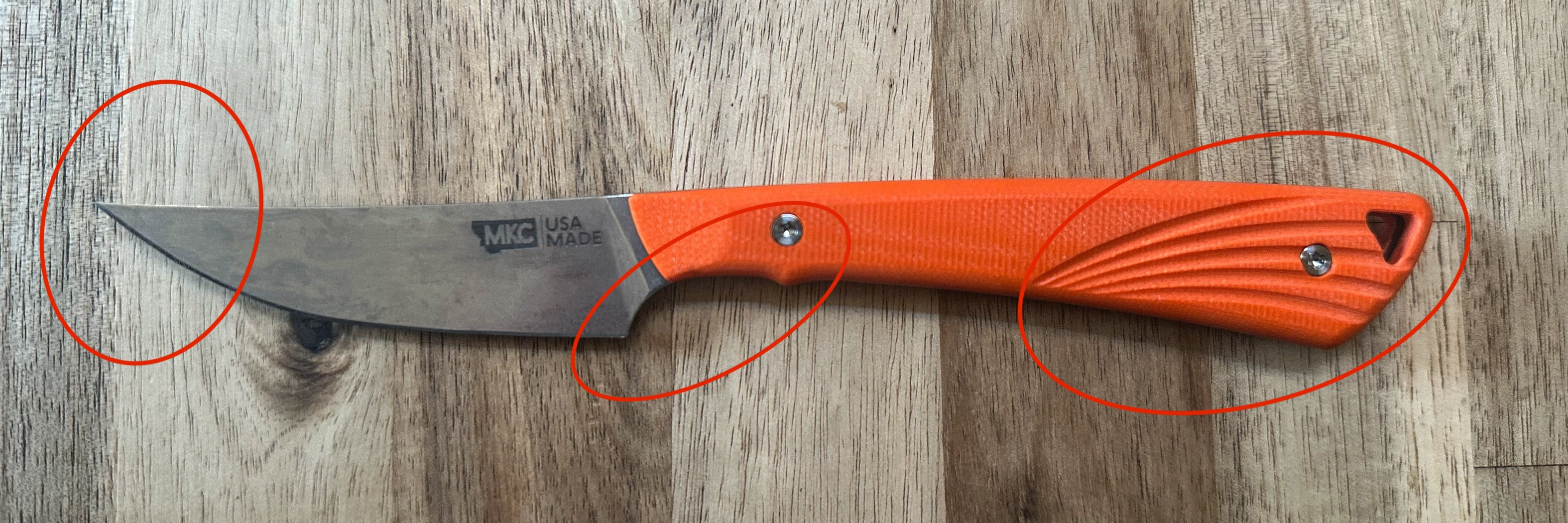
The more I use the MKC Sharptailed, the more I prefer the feel in my hand to the Flyway. That being said, I have small hands and prefer the long, slender handle. It is longer and lighter (both by a tiny margin) and has a thicker blade.
The tip is a bit more pronounced than the Flyway, giving more precision when doing the detail work that often comes along with breasting out upland birds. The more pronounced finger pocket between the heel of the blade and the handle gives a sense of security that I’m not going to slip as easily and end up slicing my finger.
Ridging toward the butt of the handle is surprisingly grippy, even when wet. It’s not just for looks. Those ridges grab.
Benchmade Flyway: Full Hand Feel, Serious Jimping, a Bit More Heft
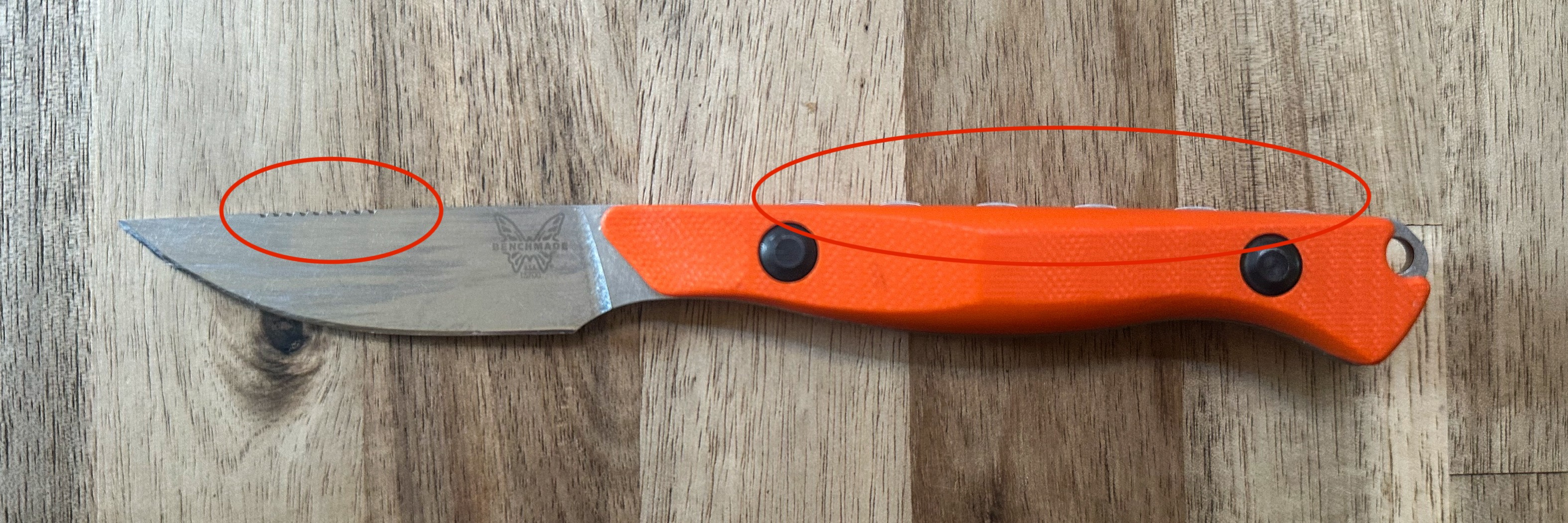
The Flyway feels heftier, which might be far preferable to those using a dainty knife. It is just a hair shorter and has a slightly thinner blade than the Sharptailed.
Really, it’s all about the jimping when it comes to the Flyway. The fingertip jimping on the blade’s spine offers a secure spot for the index finger when doing detail work, while the full-length handle section jimping gives you a better thumb grip when shifting the knife for the more aggressive cuts.
The spine shape, at first look, appears totally straight, but it does actually drop toward the tip ever so slightly.
The full belly of the handle is likely a huge bonus to those with bigger hands who want that fullness for security in hand. The handle midsection even has a bit of a peak ridge that catches the thumb and feels substantial, in a good way.
What Each Knife Could Do Better
Both of these knives are awesome. I’ve loved the Benchmade Flyway since day one and still do. There are two in my kitchen as right now and one in my bird vest. I pulled the clip off the Sharptailed sheath (it was just too much), and it joined my Flyway in my upland kit.
Now, as far as what each knife could do better — in a perfect world, I’d combine the two.
I’d love it if the Flyway had a bit better edge retention. I find myself having to sharpen it often. My orange Flyway has visible dings in the blade tip that I wish didn’t happen so often with regular use. I also would like to see that transition from handle to blade have a sharper transition angle to prevent negative blade/finger interactions.
On the other side, I wish the Sharptailed had spine jimping for a better grip. I also would also like to see the ridge details found toward the butt end of the hand also included toward the blade end of the handle. This would give a bit more traction when really “getting in there” in slippery situations.
MKC Sharptailed vs. Benchmade Flyway: Verdict
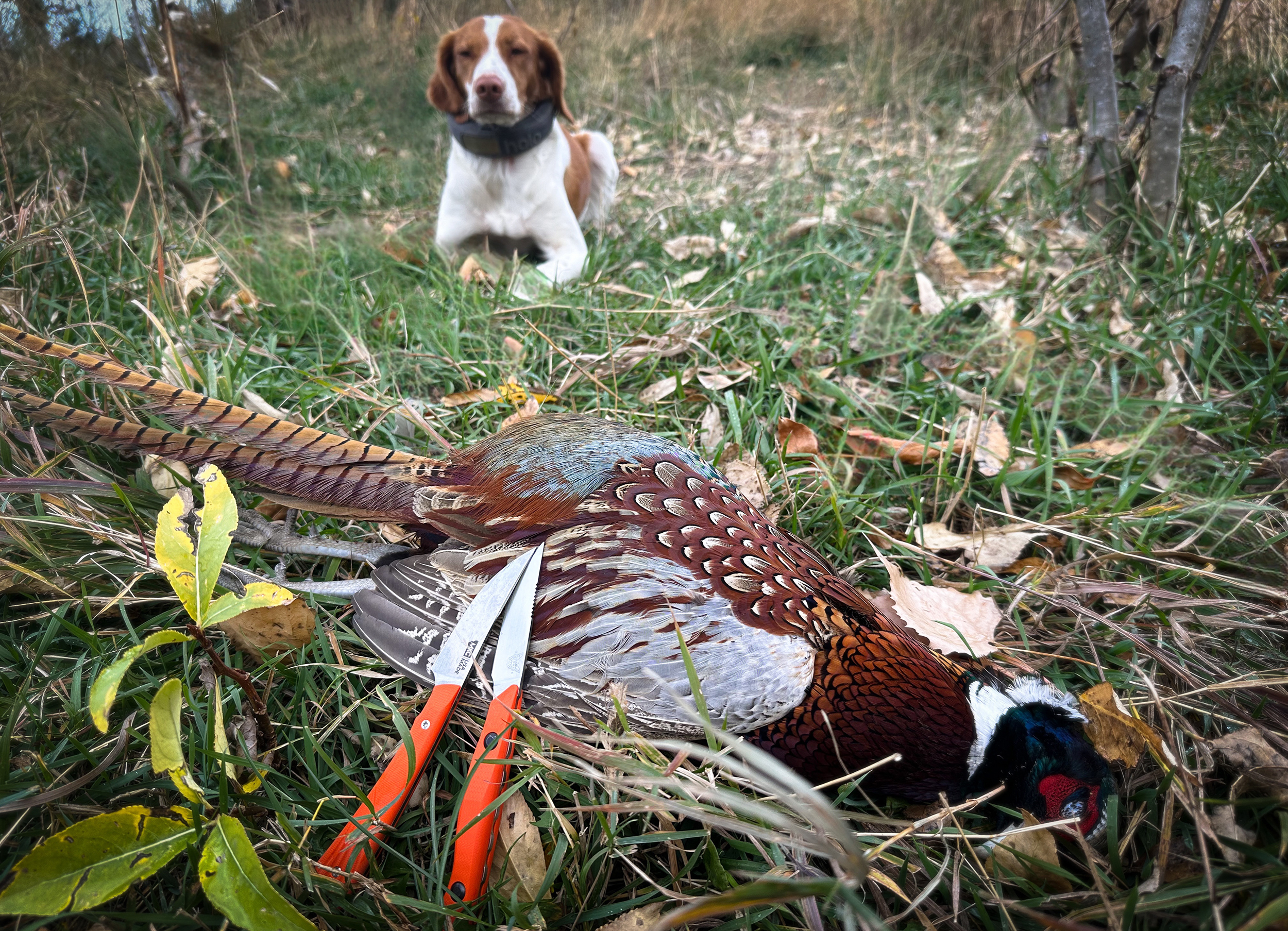
Both companies offer lifetime sharpening on American-made knives that are both rad to add to any collection.
When it comes to availability, you can almost always find the Benchmade Flyway in stock. With MKC, you might have a harder time getting your hands on a Sharptailed. The brand is known for not always having knives in stock.
When it comes to price, you’ll save money on the Flyway, but you get better-quality steel with the Sharptailed.
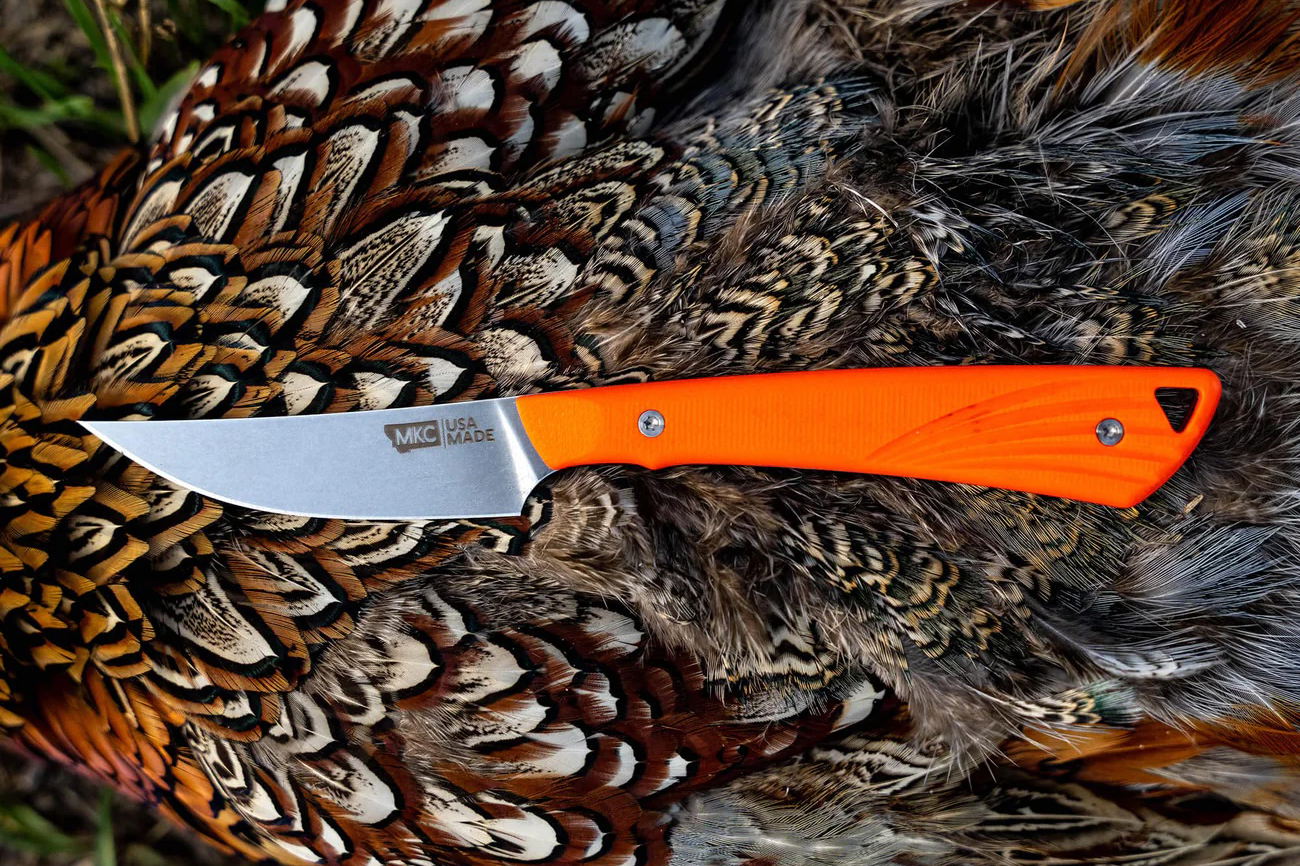
In the end, as much as it almost pains me to say this because the Benchmade Flyway is one of my favorite knives, I’d spend the extra $75 on the Sharptailed. The increased edge retention and the little details in the handle build give it just the slightest edge over the Flyway.
That said, if you need that extra cash in your pocket and you don’t mind more frequent sharpenings, the Flyway is still an awesome knife that I’ll still favor in my kitchen darn near every day.
